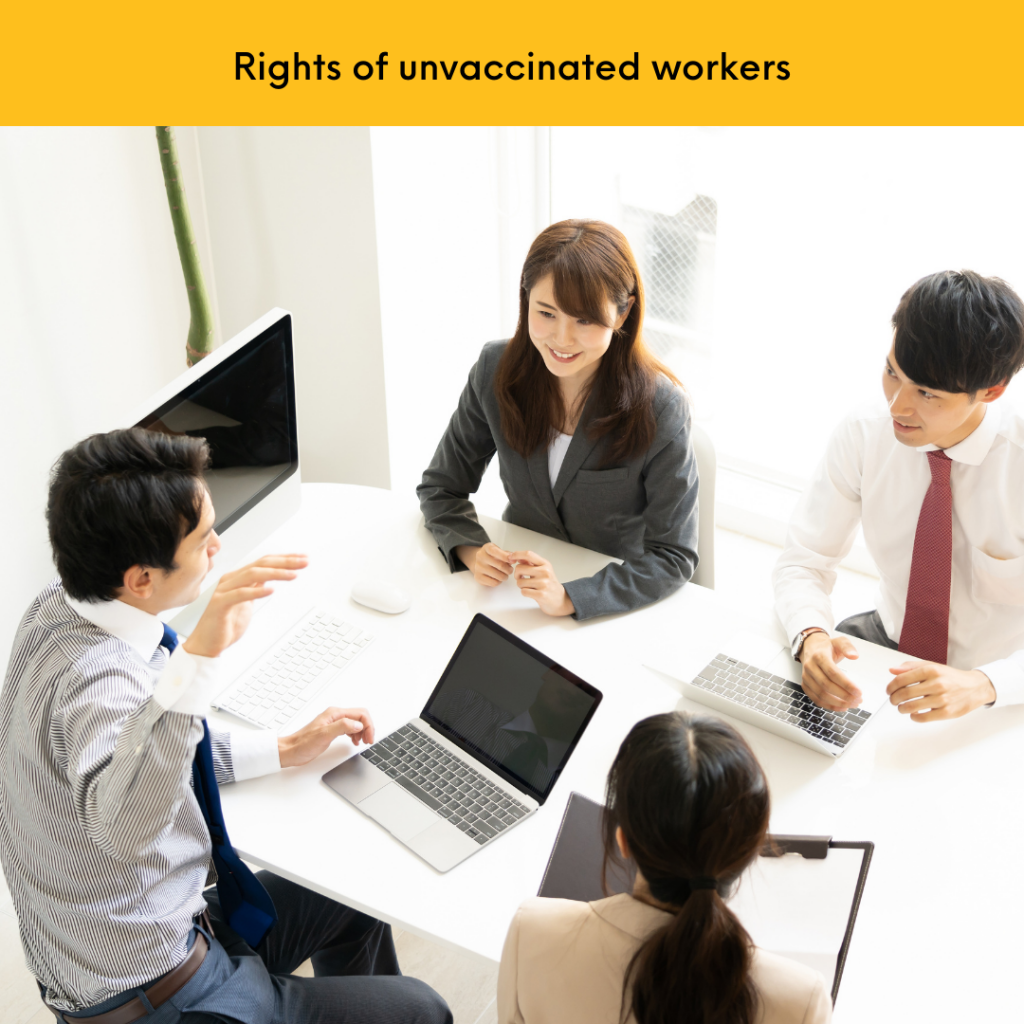
Published 11 April 2022, The Daily Tribune
With multiple areas in the country under the most lenient Alert Level 1, more business establishments have been operating at full capacity, while observing proper health protocols. However, the workplace is still not back to the “old normal” as disputes still arise regarding the rights of workers, particularly on the right against vaccination.
Employees have the right to refuse vaccination. Regardless of whether it is by reason of their belief or their health, the Department of Labor and Employment (DOLE) Labor Advisory 3, Series of 2021, provides that employees who refuse or fail to be vaccinated shall not be discriminated against in terms of tenure, promotion, training, pay, and other benefits, among others, or terminated from employment. The Labor Advisory also provides that no cost of vaccination in the workplace shall be charged against or passed on directly or indirectly to the employees. Further, employers are prohibited from adopting a “No vaccine, no work” policy.
The latest issuance on the matter of the DOLE is Labor Advisory 8, Series of 2021, which states that all employees in the private sector, except those who are ineligible or disqualified for health reasons, are highly encouraged to get vaccinated. The wording of the advisory clearly indicates that vaccination is highly encouraged, but not mandated.
However, the Inter-Agency Task Force for the Management of Infectious Diseases (IATF) issued Resolution 148-B, which limits the right of unvaccinated employees to work on-site. IATF Resolution 148-B provides that starting on 1 December 2021, all establishments and employers shall require their eligible employees who are tasked to do on-site work to be vaccinated against Covid-19. Unvaccinated workers under a work-from-home arrangement are free to refuse vaccination, but on-site workers may be compelled by management in compliance with the IATF Resolution.
The vaccination requirement of on-site employees applies only to employees eligible for vaccination. Employees are presumed eligible, as IATF Resolution 148-B provides that only the presentation of a medical clearance issued by a Municipal Health Office, City Health Office, and/or Provincial Health Office or birth certificate, as the case may be, shall serve as sufficient and valid proof of ineligibility for vaccination.
IATF Resolution 148-B also provides that unvaccinated workers may not be terminated solely by reason thereof, consistent with DOLE Labor Advisory 3, s.2021. However, said resolution also provides that they shall be required to undergo RT-PCR tests regularly at their own expense for purposes of on-site work. In cases where RT-PCR capacity is insufficient or not immediately available, the worker may take antigen tests instead.
Regarding partially vaccinated employees tasked to do on-site work, IATF Resolution 149 qualifies the requirement of vaccination. They are not required to undergo regular RT-PCR testing at their own expense, as long as their second dose is not yet due pursuant to the interval prescribed for the brand of vaccine received as first dose. This rule, however, shall not apply when all the on-site employees of an establishment are required under the Alert Level System Guidelines to be fully vaccinated.
IATF Resolution 149 also clarifies the requirement of regular RT-PCR tests (or antigen tests) for purposes of on-site work, providing that its frequency shall be construed as that determined by the employer, but which should be at least once every two weeks.
DOLE will accordingly no longer issue a labor advisory on the IATF policy. The “no work, no pay” rule may be applied to on-site workers who refuse to be vaccinated and fail to present a negative RT-PCR test. Should the worker still refuse the testing, work absence may be charged against remaining leaves. If leave credits have been used up, the “no work, no pay” policy applies.
The right to believe is absolute, but the freedom to act on one’s belief is not. Regardless of the employee’s beliefs regarding vaccination, the exercise of such belief is limited and may be enjoyed only with proper regard to the rights of others and public welfare.
For more of Dean Nilo Divina’s legal tidbits, please visit www.divinalaw.com. For comments and questions, please send an email to cabdo@divinalaw.com.

